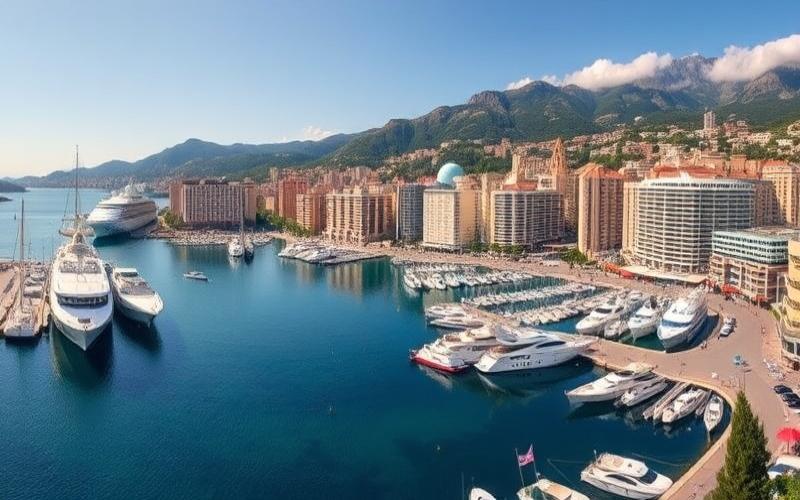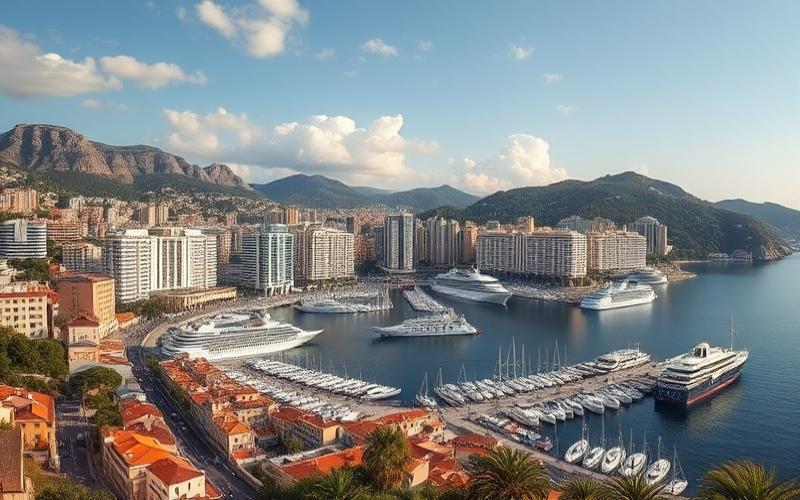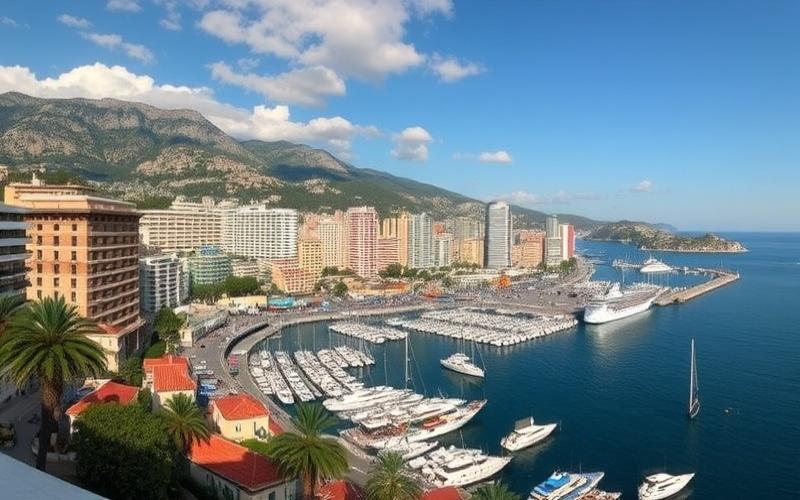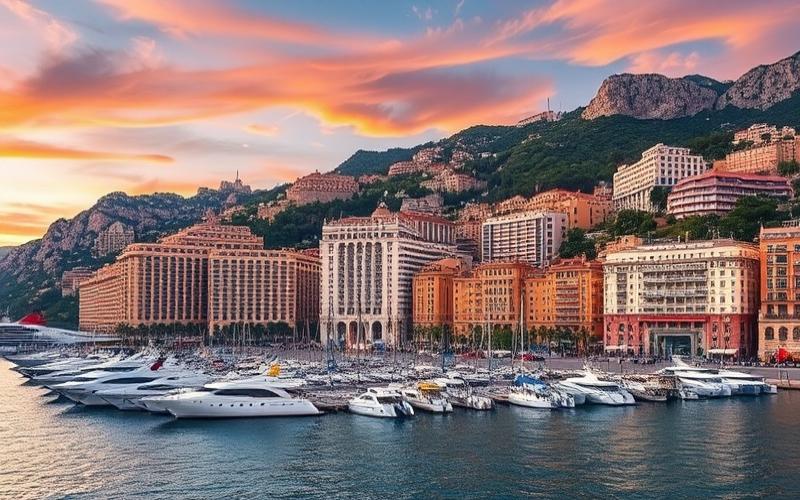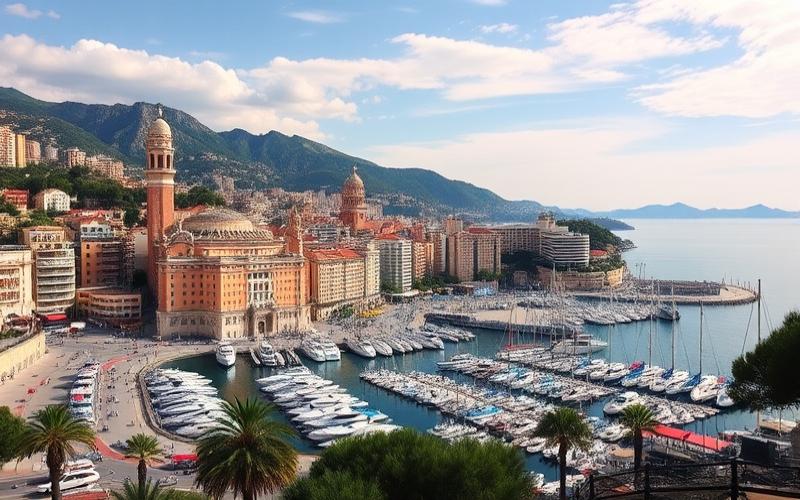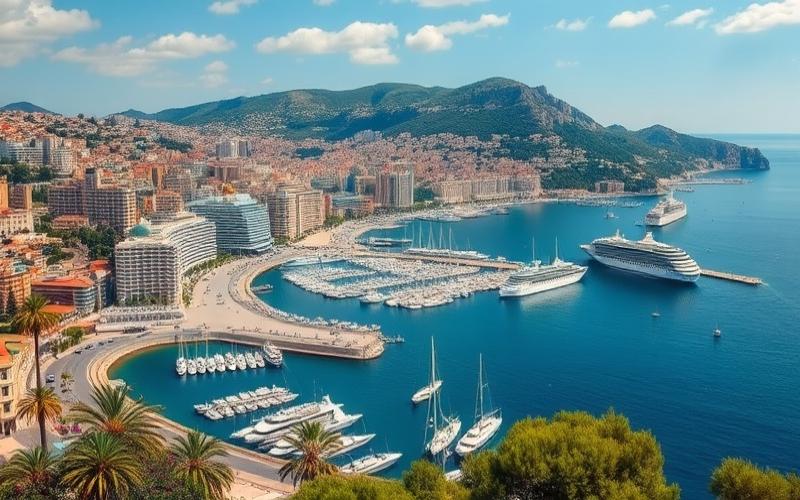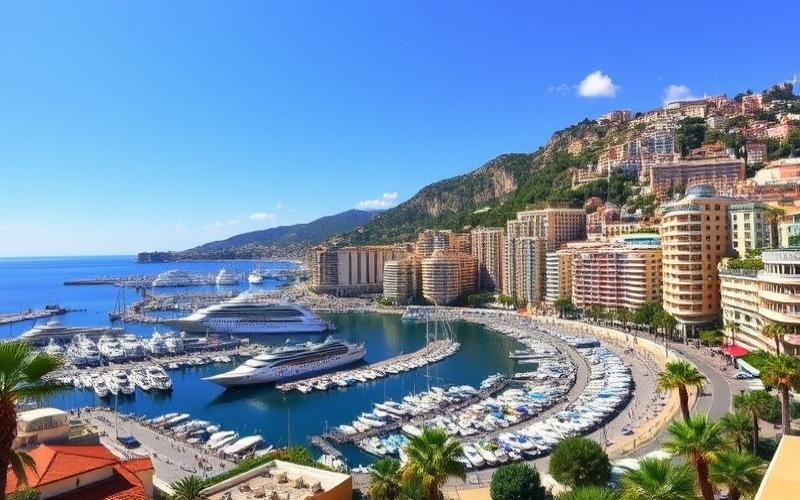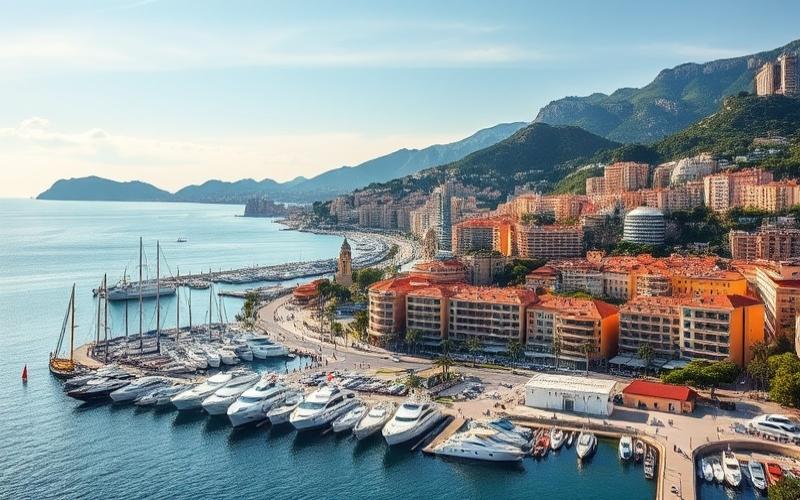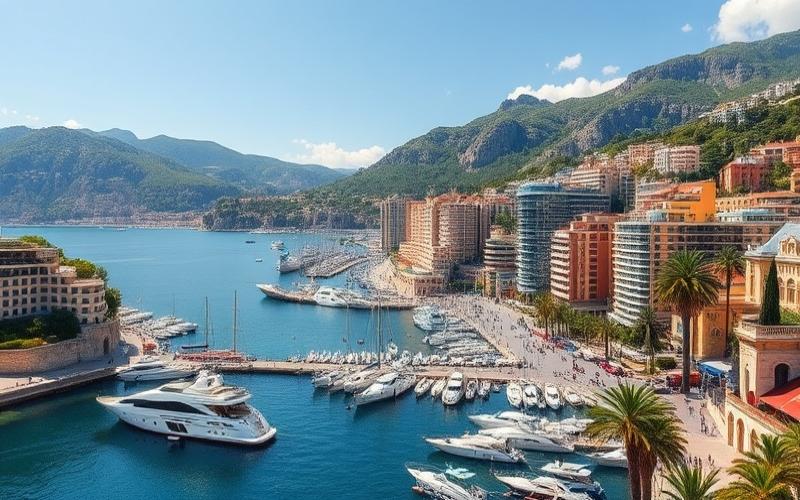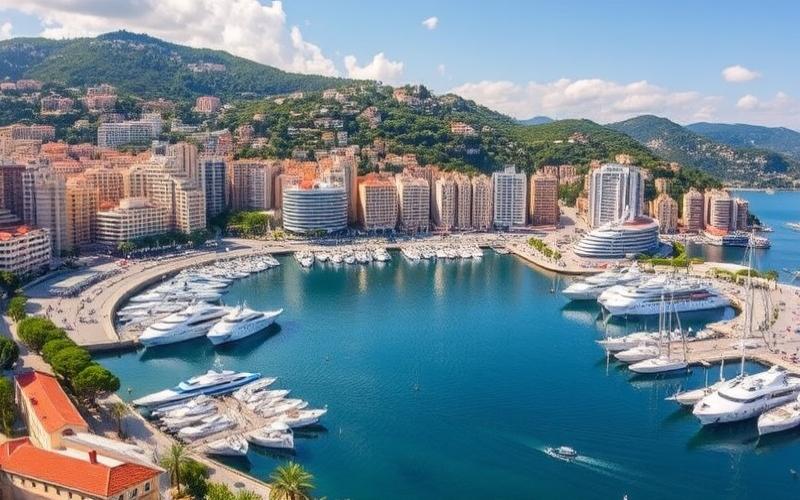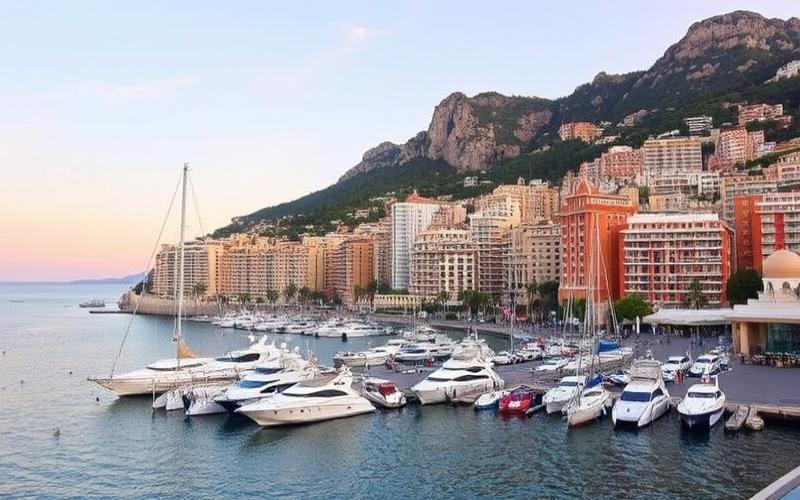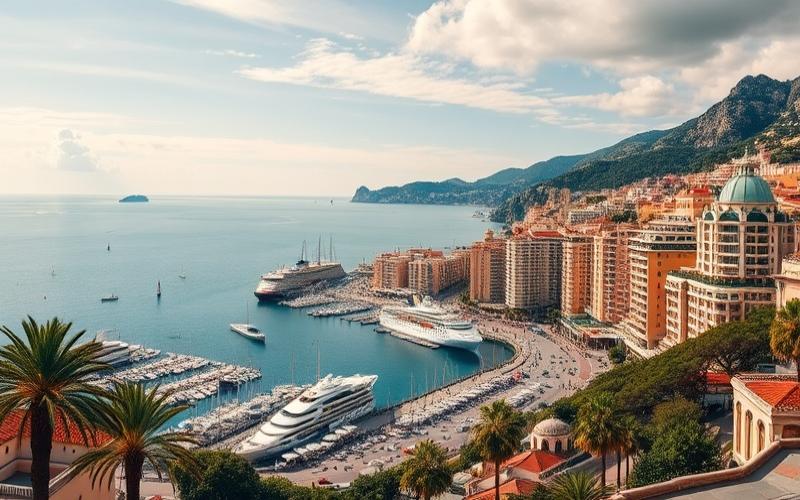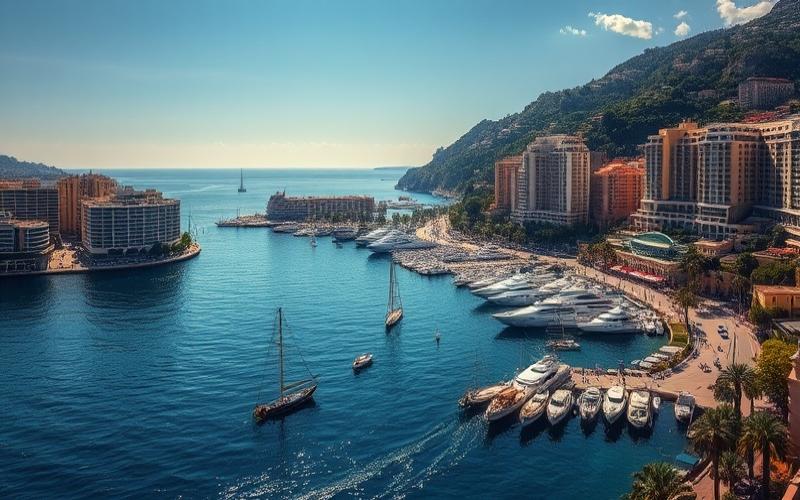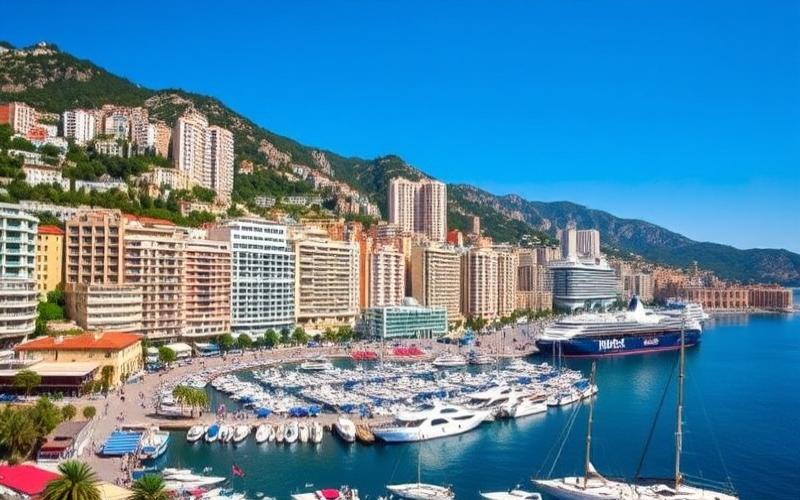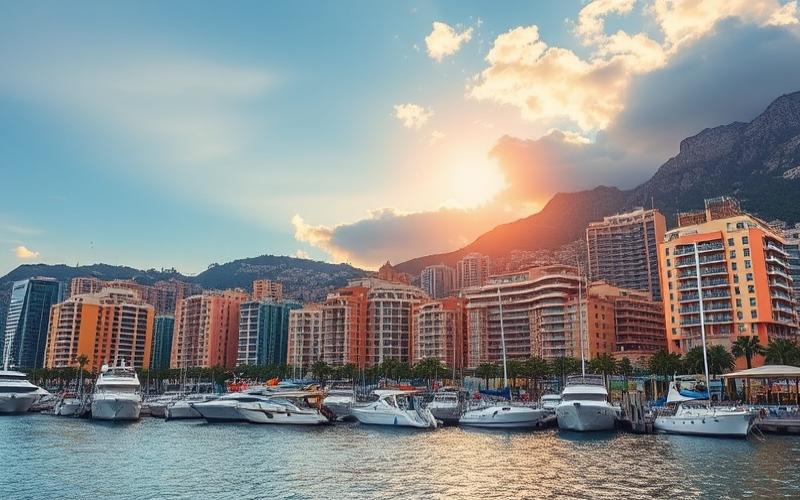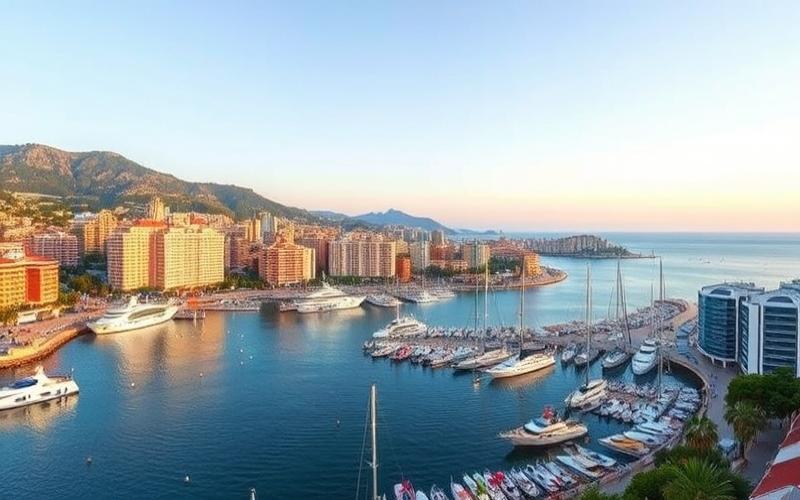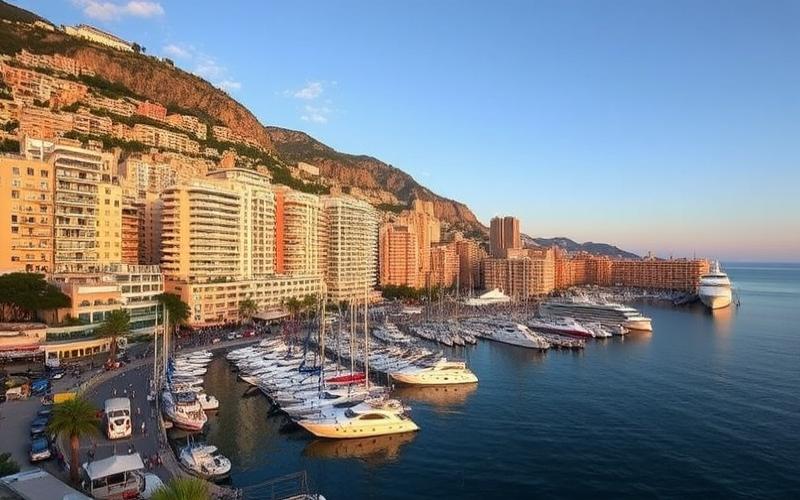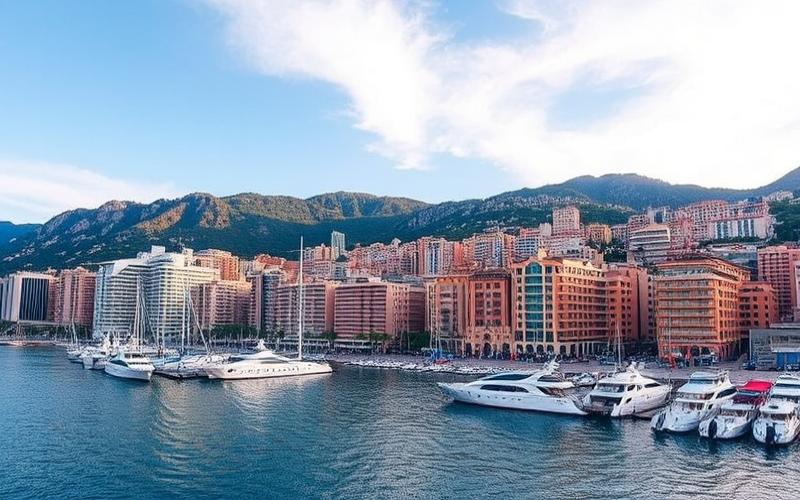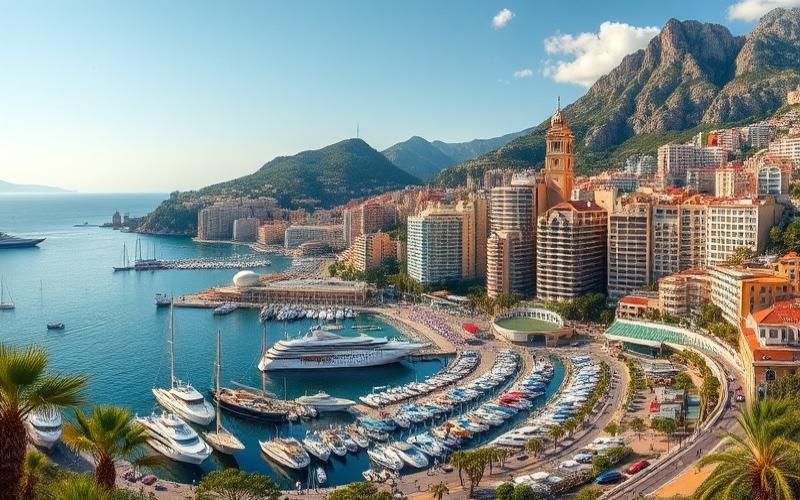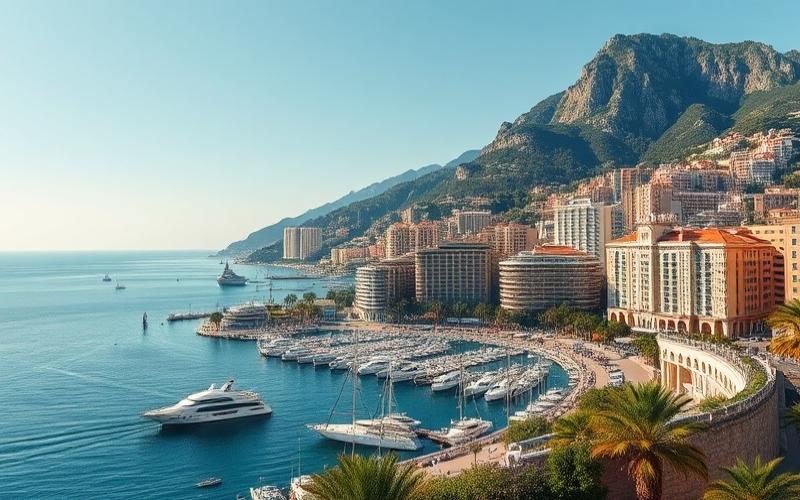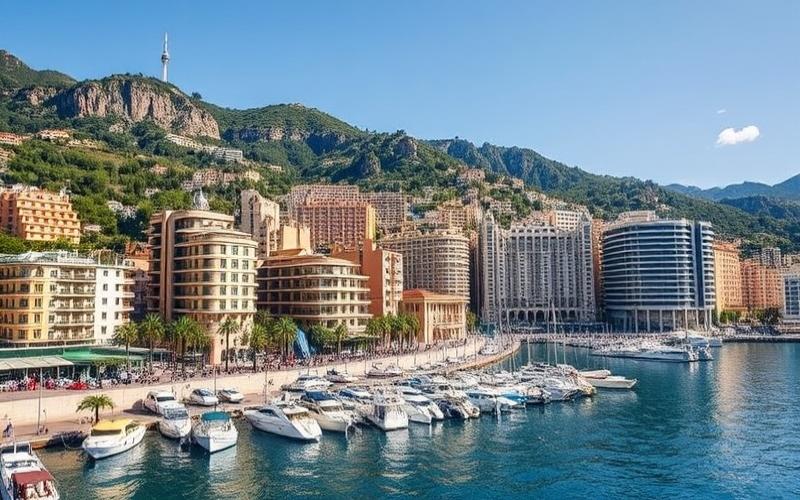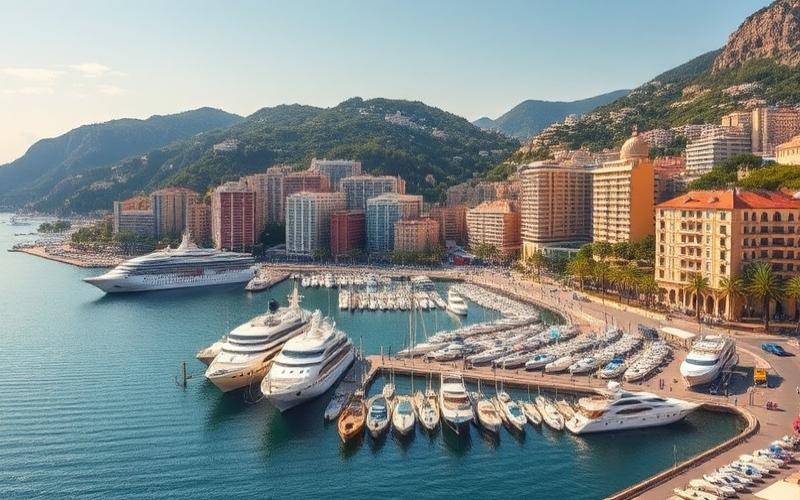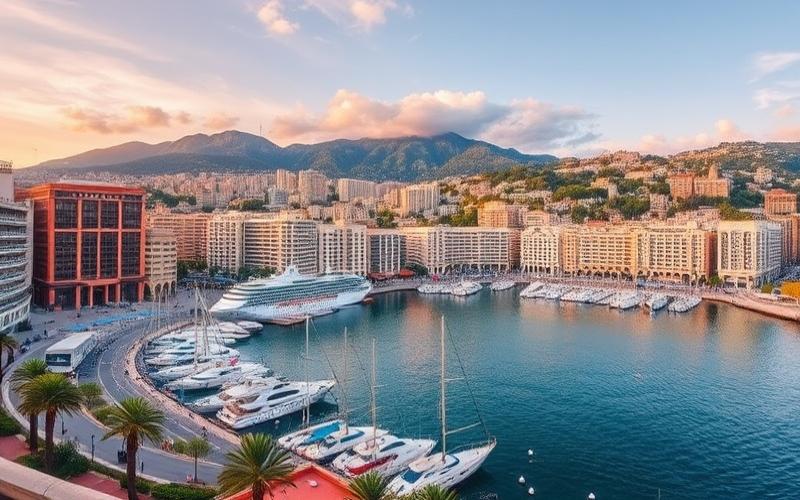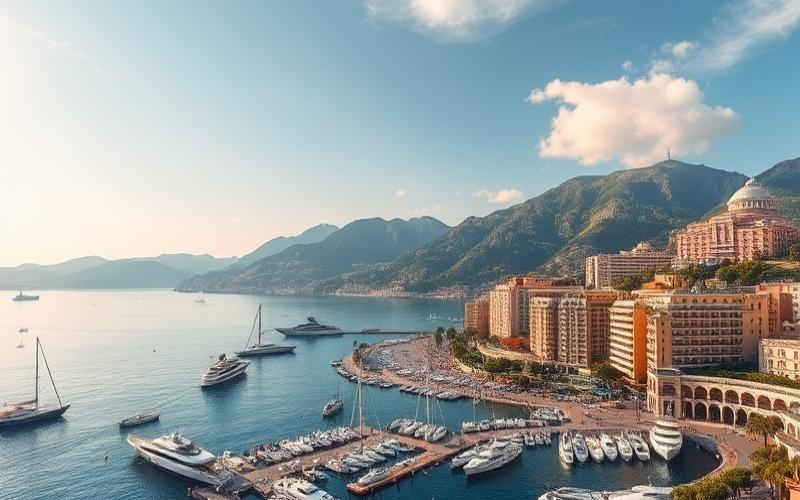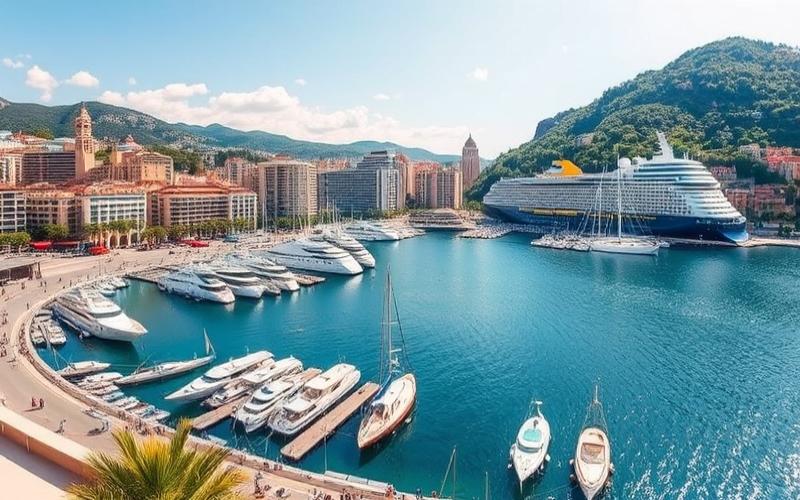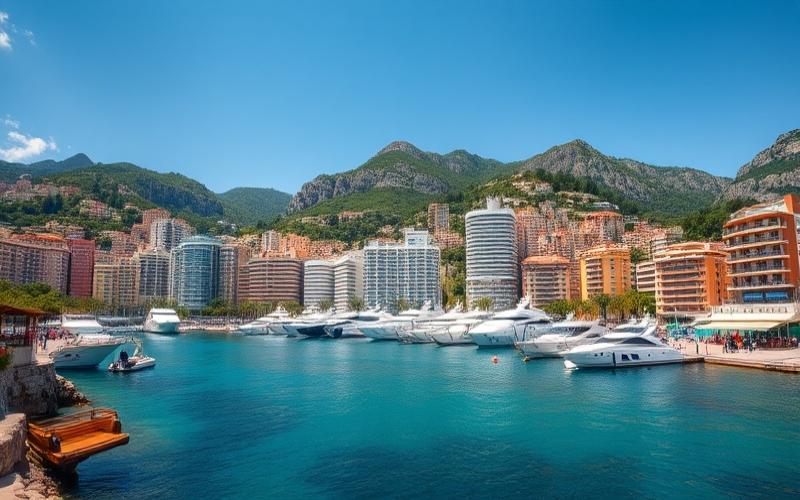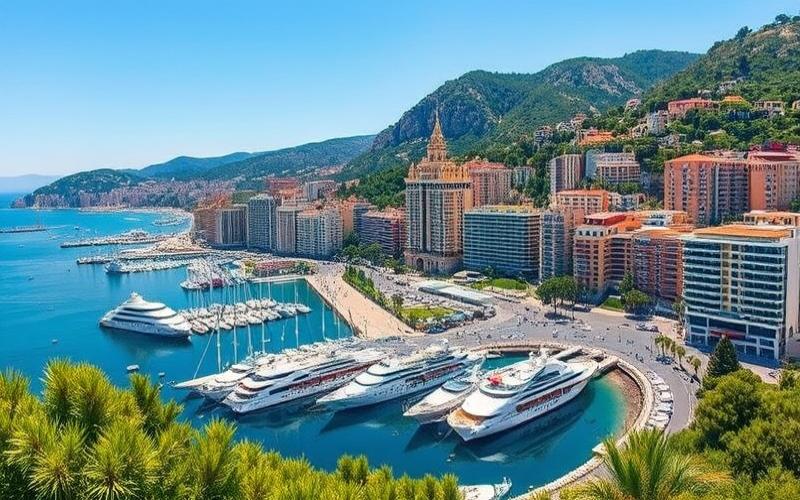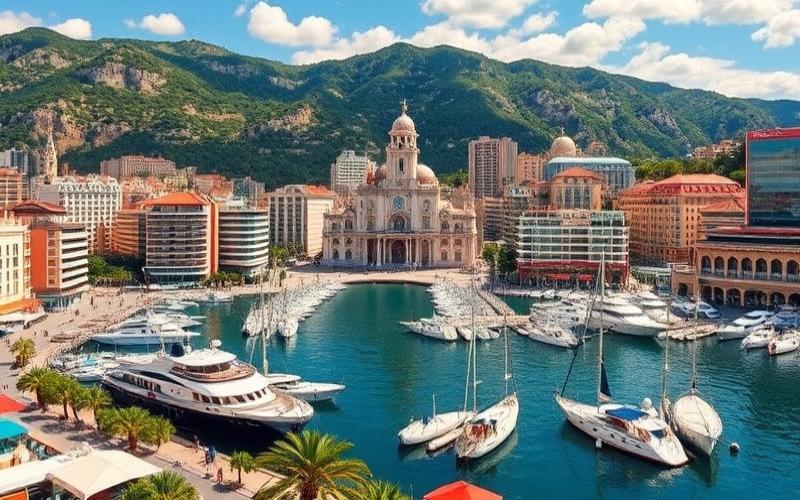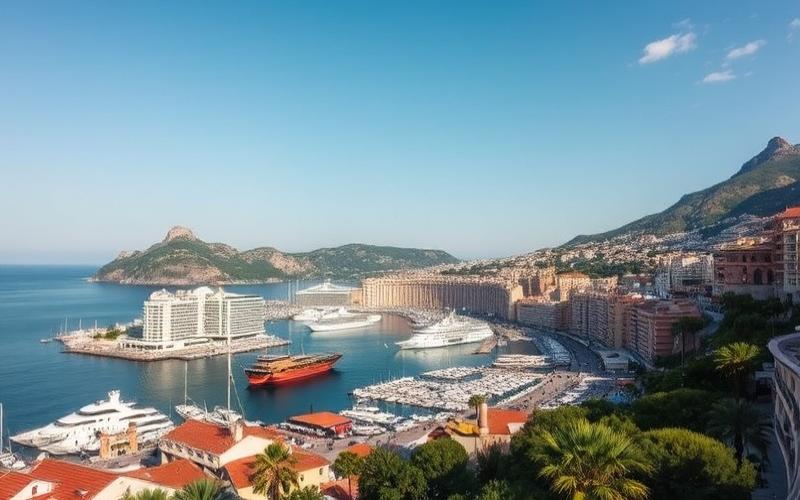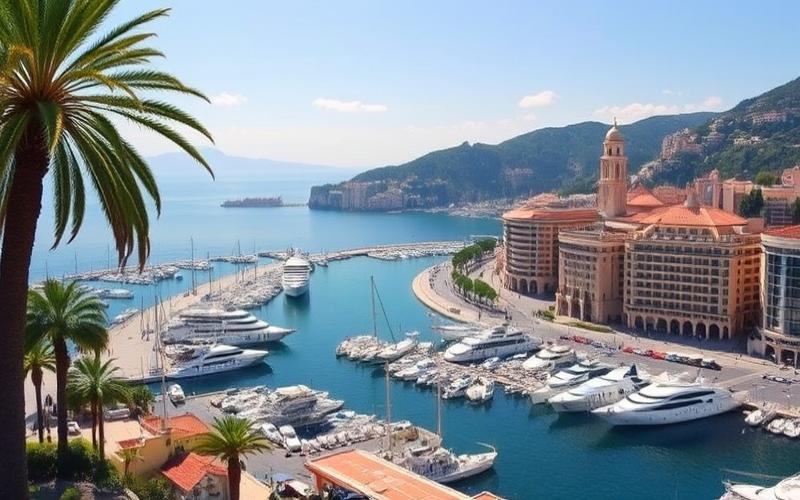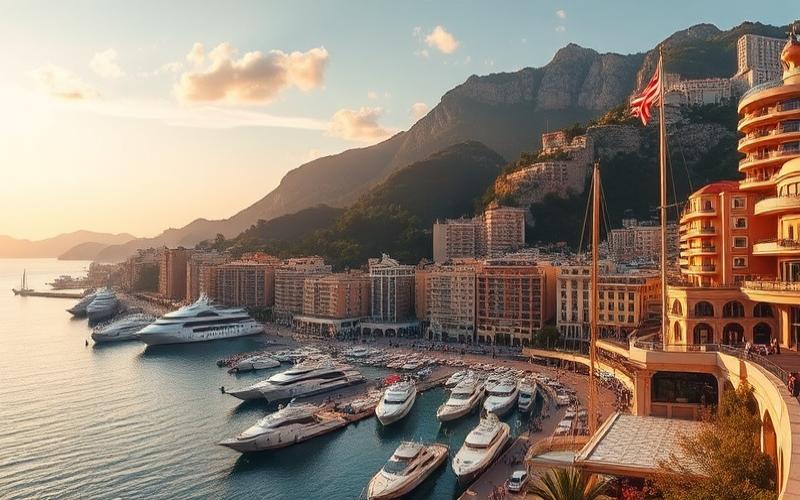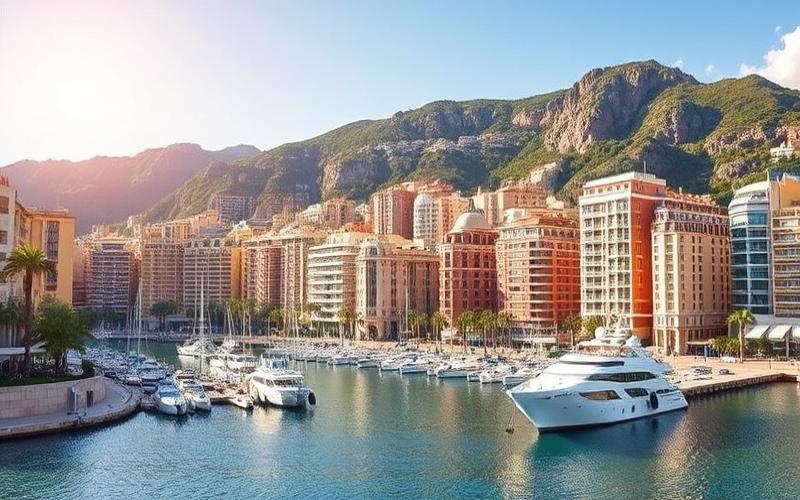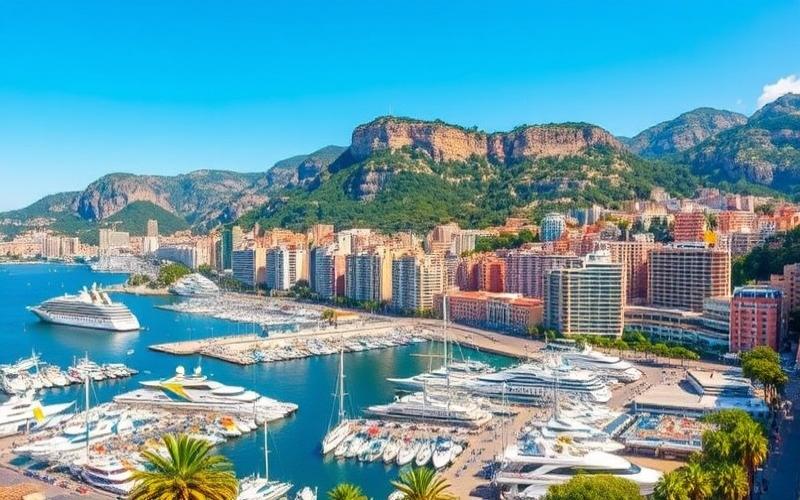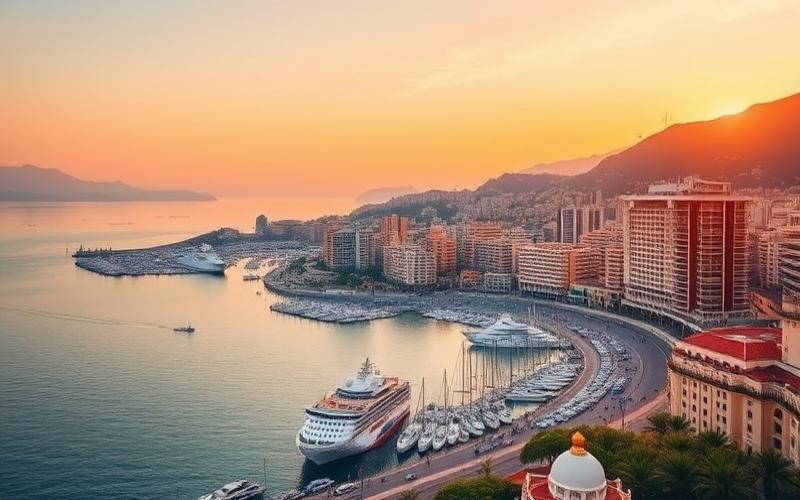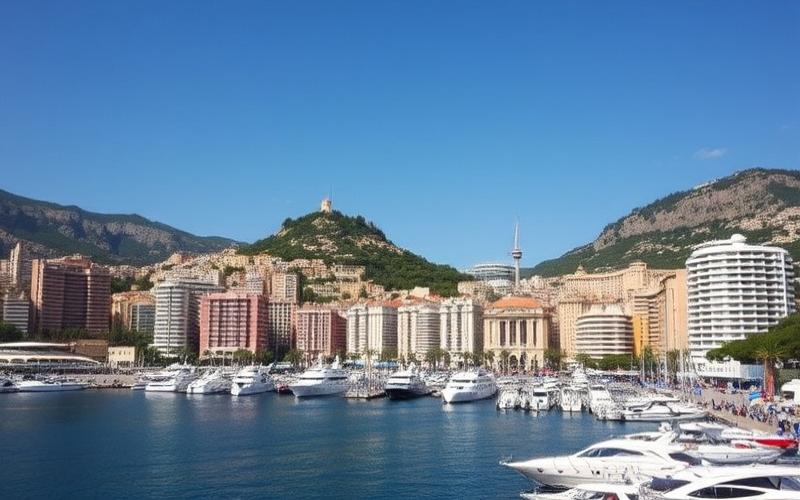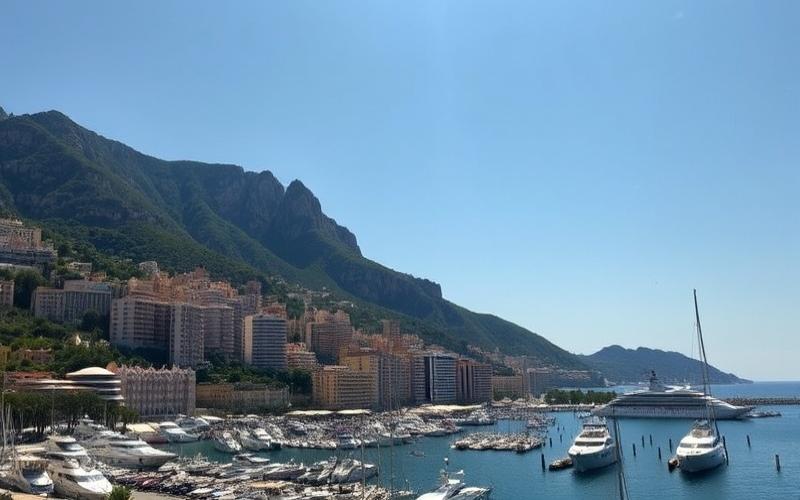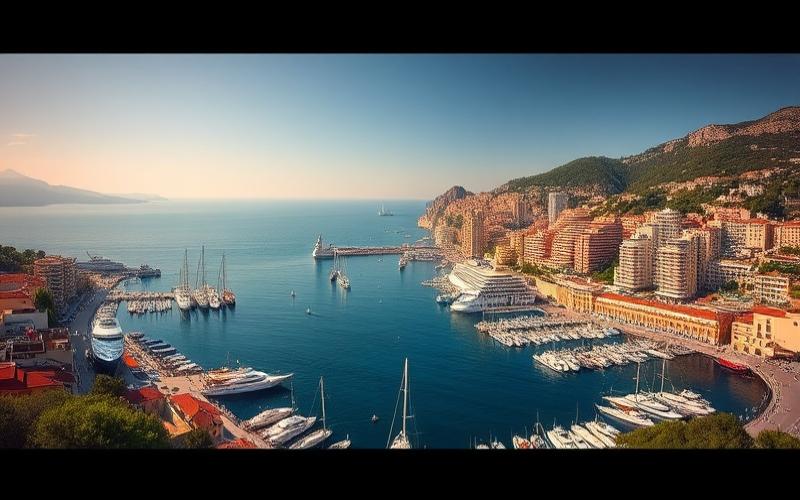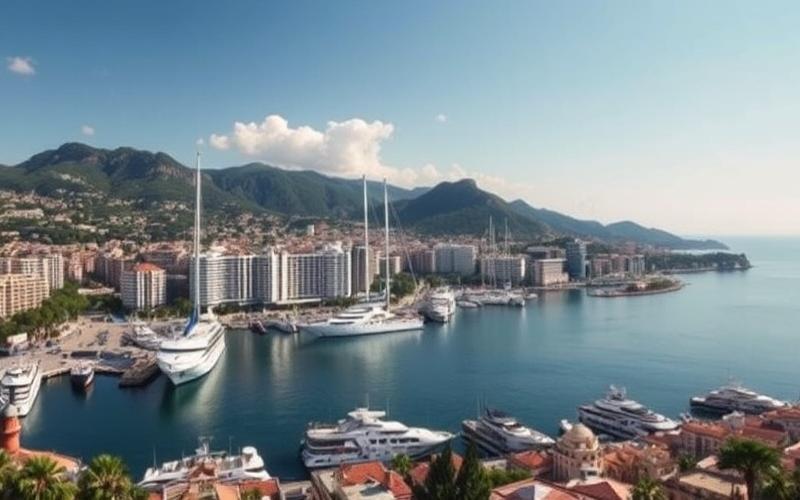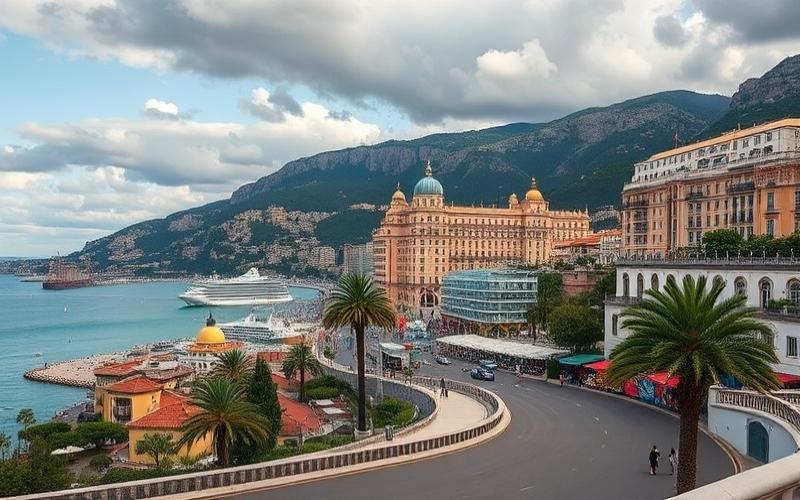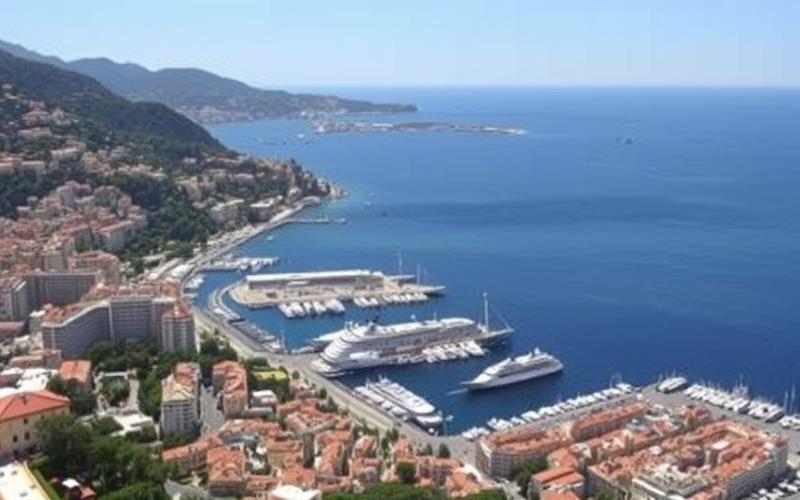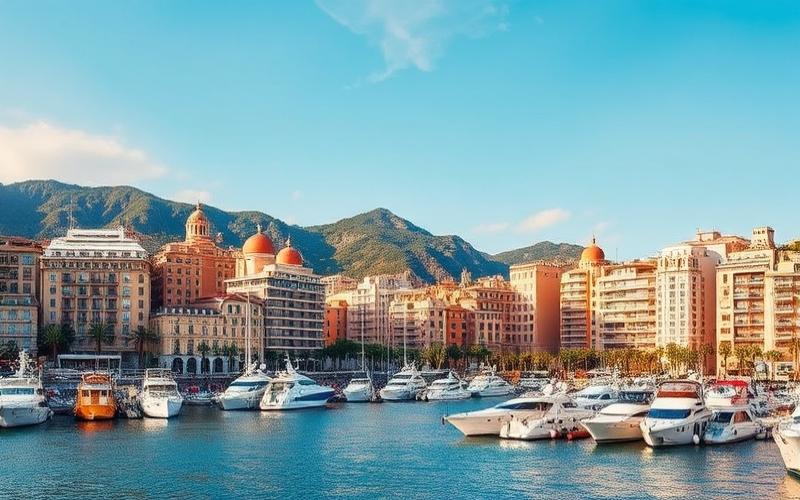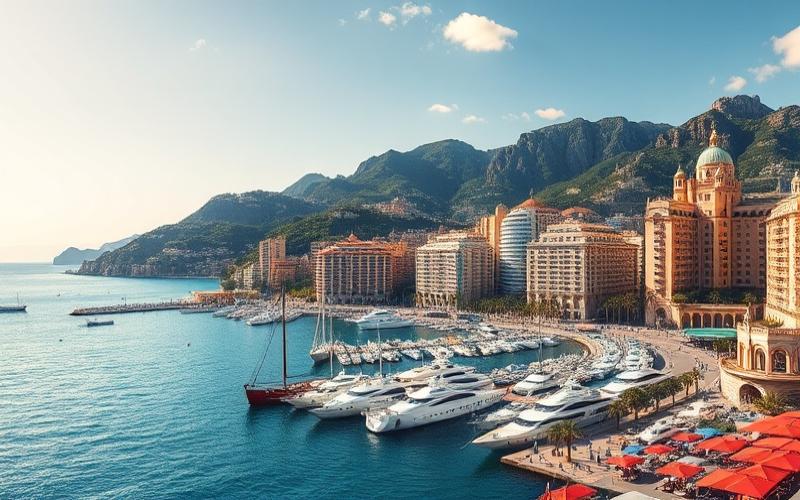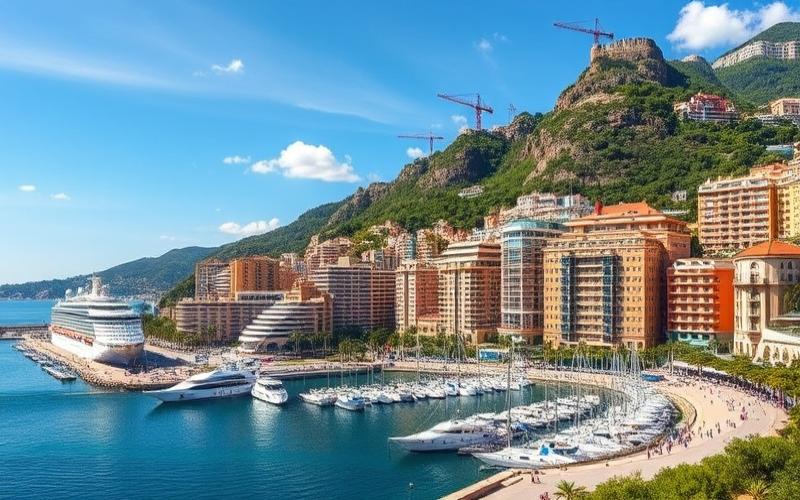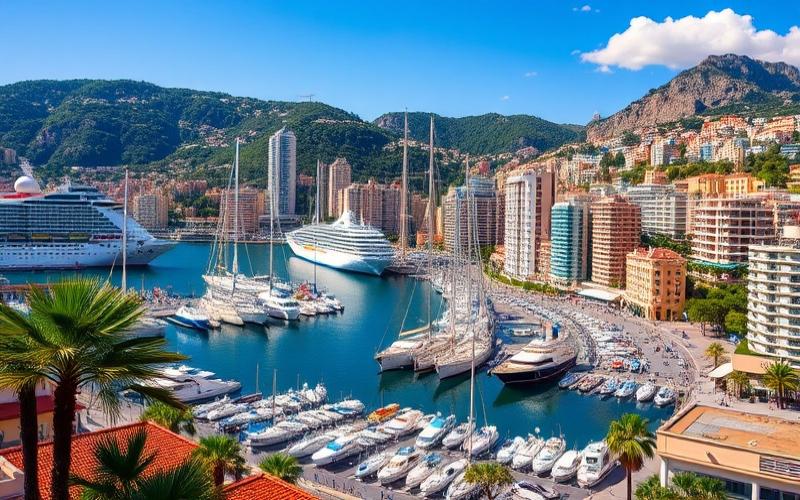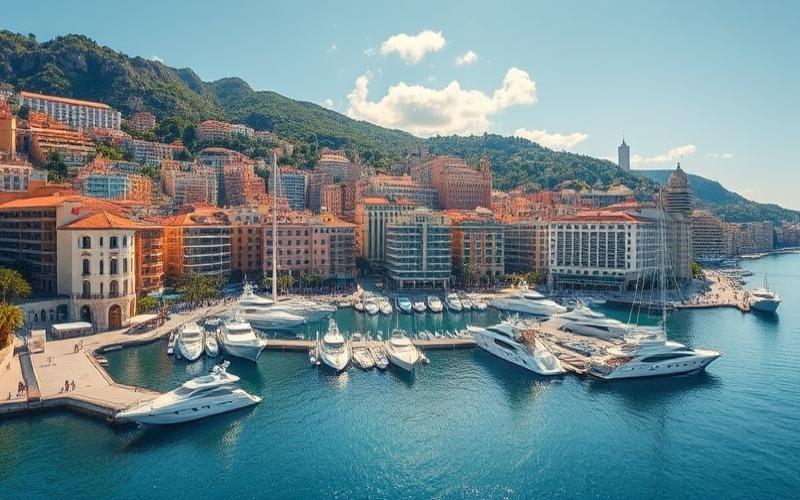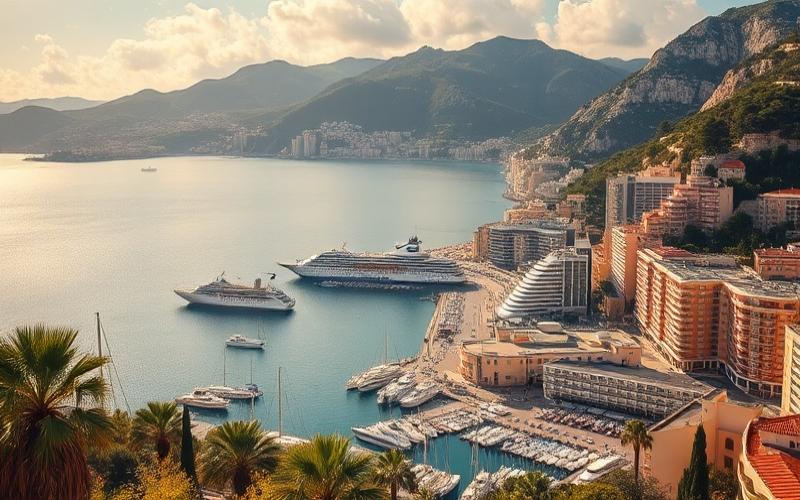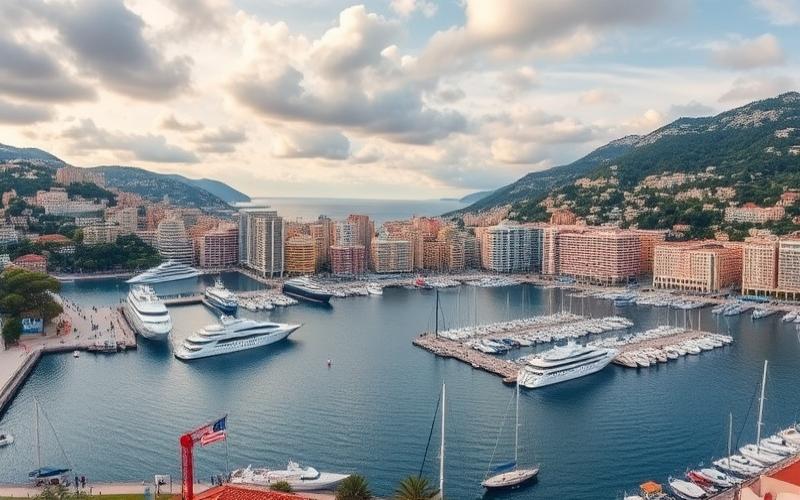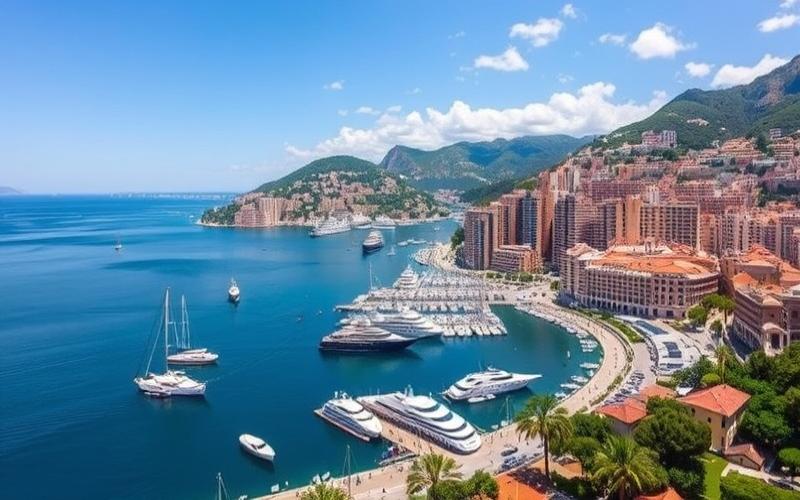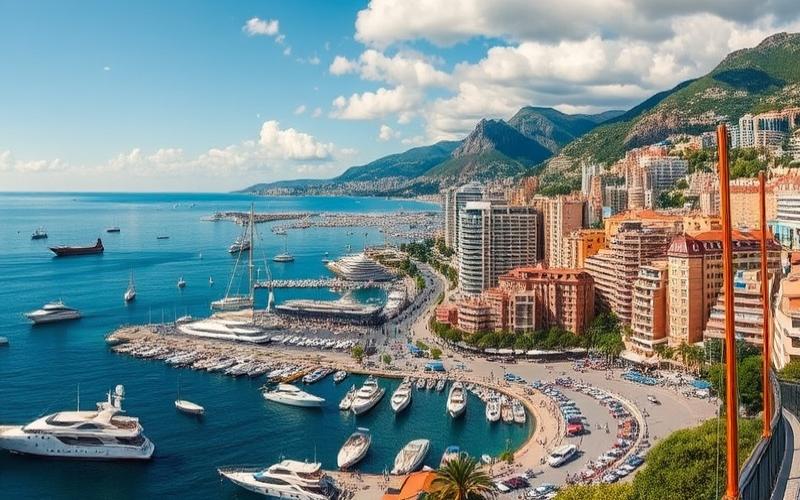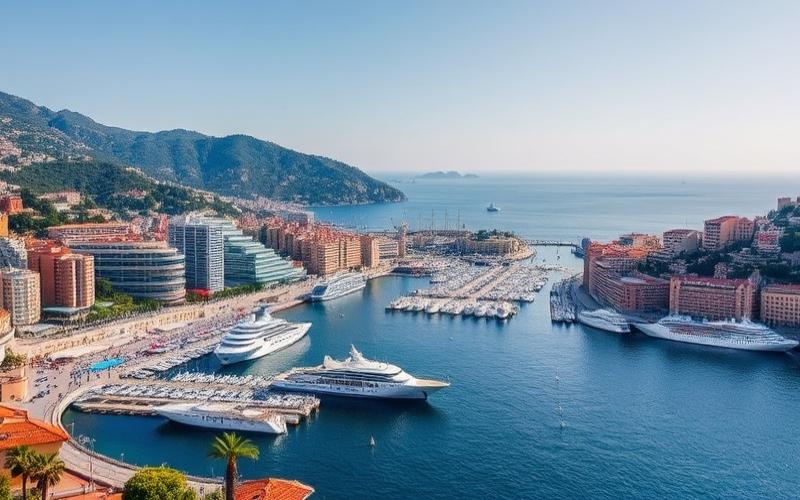
 Published on and written by Cyril Jarnias
Published on and written by Cyril Jarnias
Monaco, Pioneer of Green Real Estate in 2025
In a context where sustainability is becoming a global priority, Monaco, often associated with luxury and sophistication, aims to be a pioneer in green real estate innovation.
In 2025, the principality, concerned about its ecological footprint, is strengthening its rigorous environmental standards, encouraging real estate developers to adopt more eco-friendly practices.
Good to know:
These efforts are supported by attractive subsidies aimed at encouraging the adoption of renewable energy and the use of sustainable building materials.
This movement toward greener architecture is not only beneficial for the environment but also promises to redefine Monaco’s urban landscape while increasing property values and resident well-being.
Introduction to Green Real Estate in Monaco
Green real estate refers to a set of practices aimed at designing, constructing, renovating, and operating buildings while minimizing their environmental impact. The main objectives are reducing carbon footprint, optimizing energy efficiency, preserving natural resources, and ensuring occupant well-being. This involves rigorous material selection (bio-based, recyclable), improved insulation, use of renewable energy (solar panels, heat pumps), and smart water management.
The fundamental aspects of green real estate include:
- Significant reduction in energy consumption
- Limited use of fossil fuels
- Reduced greenhouse gas emissions throughout the building’s lifecycle (construction, operation, renovation)
- Increased property value through environmental performance
- Improved comfort and indoor quality for users
In the specific context of Monaco:
Monaco has demonstrated a strong commitment to sustainable development for several years. The Principality has adopted various ambitious ecological policies to align its urban planning with more environmentally respectful approaches.
Several reasons make green real estate particularly relevant for Monaco:
- Very limited territory: restricted land area requiring optimization of every built square meter.
- High urban density: urgent need to improve energy performance without expansion possibilities.
- High energy dependency: essential reduction in consumption through efficient or self-sufficient buildings.
- Increased sensitivity to living environment and international prestige: strong expectations for sustainable architectural innovation.
The Principality has thus implemented various recent standards oriented toward sustainable real estate development:
| Standard/Policy | Main Objectives |
|---|---|
| Enhanced thermal regulations | Reduce energy needs during construction/renovation |
| HQE/LEED/BREEAM Certification | Guarantee high environmental quality |
| Material requirements | Promote local/bio-based/recycled materials |
| Tax incentives | Encourage green investments |
These measures are accompanied by economic incentives such as subsidies or tax benefits for developers committed to this transition.
The expected benefits for Monaco are multiple:
Economic Advantages
- Structural reduction in energy costs for occupants/investors
- Higher property valuation in light of future regulatory requirements
- Enhanced appeal to international clients sensitive to these issues
Environmental Benefits
- Direct contribution to Monaco’s targeted carbon neutrality
- Optimal preservation of existing urban and natural territory
- Tangible improvement in urban comfort despite high density
Good to know:
Green real estate in Monaco aims to reduce carbon footprint and optimize building energy efficiency within a context of high urban density and limited resources. While the Principality is already committed to ecological policies, it has strengthened its standards by adopting strict regulations to promote sustainable real estate development. Laws favor the use of eco-friendly materials and implementation of renewable energy systems. Green real estate is particularly crucial here as it supports efficient resource management while offering economic benefits such as reduced energy costs and increased property values, attracting investors while improving resident well-being.
The widespread adoption of “green” practices thus positions Monaco as an innovative model where economic performance aligns with environmental excellence
Ecological Standards for Construction in Monaco
Environmental regulations for construction in Monaco are based on a strict framework inspired by the most demanding international standards. The main requirements include:
- Energy Efficiency: High-performance thermal insulation to reduce heating and cooling needs, limitation of energy loss through excellent air tightness, and mandatory use of energy-efficient lighting systems.
- Natural Resource Management: Sanitary equipment must limit water consumption. Integration of renewable energy (photovoltaic solar, geothermal) is strongly encouraged, and sometimes mandatory depending on building type.
- Waste Reduction: The source correction principle requires sector players to prioritize prevention and direct treatment of environmental impacts during each project phase.
| Requirement | Objective | Practical Application |
|---|---|---|
| Thermal insulation | Reduce energy consumption | High-performance insulating materials |
| Air tightness | Limit energy losses | Mandatory on-site testing |
| Efficient equipment | Reduce water & energy usage | Specific faucetry, LED lighting |
| Renewable energy | Decarbonize electricity production | Solar panels/geothermal wells |
The Monegasque Environmental Code also establishes several fundamental principles:
- Right to a healthy environment
- Prevention and precaution principle
- Source correction
- Polluter-pays principle
- Integration of sustainable development in all public policies
Recent Government Initiatives:
The government has strengthened its standards through:
- Financial incentives to promote energy renovation and sustainable construction,
- Systematic encouragement of international environmental certifications (LEED, BREEAM or HQE),
- Active support for technological innovations, particularly in using bio-based or recycled materials.
Iconic Examples:
Maritime Extension “Mareterra”: This new eco-district perfectly illustrates these requirements. It integrates a marine ecological belt to preserve existing underwater biodiversity; its construction site minimizes noise pollution with a dedicated sound barrier; it extensively uses renewable energy, sustainable materials, and anti-waste devices.
Real Estate Renovation: Several recent buildings have obtained HQE or BREEAM certification through extensive use of rooftop solar thermal systems and systematic recycling of construction waste.
International/Regional Collaborations:
Monaco is actively involved in various collaborations:
- Participation in Mediterranean networks for sharing best practices in sustainable urban planning.
- Cooperation with the European Union through specific agreements even though Monaco is not a direct member.
- Technical partnerships with international institutes specialized in energy efficiency or responsible urban construction management.
Summary list:
- Standards inspired by LEED/BREEAM/HQE applied locally
- Financial incentives & national technological support
- Pilot projects demonstrating effective carbon footprint reduction
These combined efforts position Monaco as a regional model for ecological requirements applied to the real estate sector
Good to know:
In Monaco, ecological construction standards impose strict energy efficiency, sustainable management of natural resources, and significant reduction of construction waste. The government recently strengthened these measures through technological innovation and use of sustainable materials, as evidenced by projects like the Mareterra district, which integrates renewable energy and green architecture to minimize carbon footprint. Simultaneously, Monaco aligns with international collaborations, particularly with the Paris Agreement, to continuously optimize its ecological construction standards.
Subsidies for Renewable Energy
Monaco aims to become a model of energy transition, with ambitious goals such as reducing greenhouse gas emissions by 55% by 2030 (compared to 1990) and achieving carbon neutrality by 2050. The real estate sector is at the heart of this strategy, representing approximately 35% of the country’s total emissions.
Types of subsidies available for renewable energy integration:
- Direct subsidies for individuals and condominiums
– Coverage of up to 20% of work costs, capped at €2,000 for housing, aimed at installing equipment promoting renewable energy or energy renovation. - National Green Fund
– Endowed with approximately €25 million, it finances the national action plan, with a significant portion dedicated to buildings (efficient heating, air conditioning, solar panels).
| Subsidy Type | Maximum Amount | Target Audience | Main Objective |
|---|---|---|---|
| Work subsidy | €2,000 | Owners/tenants | Renewable energy installation/renovation |
| Green Fund | Variable by project | Condominiums/Businesses | Renovation & energy innovation |
Objectives and legal ecological standards:
- Progressive requirement for all new public and private buildings to achieve high energy performance levels.
- Regulatory encouragement to integrate solutions such as photovoltaic or thermal solar in new constructions or major renovations.
- Strict compliance with the Monegasque environmental framework in all new real estate projects.
Key Government Initiatives:
- Creation in partnership with SMEG (Monégasque Electricity and Gas Company) of Monaco Energies Renouvelables (M.E.R.), a company investing in solar, wind, and hydroelectric development—both domestically and abroad—so Monaco virtually has equivalent green energy to cover its national consumption.
- Regular acquisition by M.E.R. since 2017 of *photovoltaic power plants* totaling over 128 MWp, representing nearly one-third of annual national electricity needs covered by own production.
Main Eligibility Criteria:
- Be a legally declared owner or tenant in Monaco
- Building located in Monaco
- Work compliant with technical specifications set by the Energy Transition Mission
- Complete application filed before actual construction start
Standard Procedure:
- Prior submission of application to competent service (Energy Transition Mission)
- Technical analysis according to defined energy criteria
- Written notification if accepted; payment after post-work inspection
Concrete Examples:
> Several older residential buildings recently benefited from the Green Fund to install enhanced thermal insulation combined with rooftop solar panels; this resulted in measured reductions of up to 30% in their annual energy bills and significant local CO₂ reduction.
> Thanks to M.E.R. investments, Monaco already covers nearly 34% of its annual electricity consumption through its own green power plants distributed across several French regions.
The implemented measures demonstrate not only real impact on national carbon footprint but also position Monaco as an exemplary European laboratory in the real estate transition toward clean energy.
Good to know:
In Monaco, subsidies for renewable energy in the real estate sector are part of an ambitious strategy to achieve energy transition goals by 2025. The Monegasque government offers support for integrating solar, wind, and geothermal technologies in new constructions and renovations. In compliance with strict legal standards for ecological construction, projects benefit from these subsidies if they meet energy efficiency criteria and reduced carbon footprint. The application process for these subsidies is simplified, mainly requiring proof of investment in technologies recognized for their positive environmental impact. A notable example is the “Le Monte-Carlo Soleil” building, which benefited from these aids to integrate solar panels, reducing its energy consumption by 30%. These initiatives illustrate how subsidies reinforce Monaco’s commitment to sustainable real estate development.
BREEAM Certification and Its Application in Monaco
BREEAM certification (Building Research Establishment Environmental Assessment Method) is a pioneering international framework for assessing building environmental performance. Created in 1990 by BRE in the UK, it draws on over thirty years of scientific expertise and has established itself as a global reference for promoting sustainability in the real estate sector.
The fundamental principles of BREEAM are based on:
- Integration of environmental, social, and economic criteria at each stage of the building lifecycle.
- A flexible approach adaptable to different types of real estate assets, new or existing.
- Assessment of multiple themes: sustainable resource management, energy efficiency, indoor health quality, waste management, soft mobility, and climate change adaptation.
- A system based on continuous improvement: performances are measured across several levels (Pass to Outstanding).
The growing importance placed on sustainable construction, driven by ESG (Environmental, Social, and Governance) commitments, now makes the BREEAM label a differentiating criterion for institutional investors and real estate developers.
| Year | Key BREEAM Event |
| 1990 | First “Offices” certification launched |
| 2000s | Extension to collective housing & renovations |
| Since 2015 | Enhanced international application; local adaptation |
In Monaco, the recent adoption of the BREEAM label fits within an ambitious policy aimed at reducing the national carbon footprint. The Princely Government actively encourages this approach through:
- Direct financial aid for certified projects,
- Subsidies linked to environmental audits,
- Technical support during preliminary phases with the Urban Planning Department,
- Increased land value for properties meeting international standards.
Locally concerned buildings mainly include:
- New office buildings
- High-end residences
- Major renovations of historic hotels
- Mixed projects integrating commerce & housing
Concrete examples in Monaco that have obtained certification:
“Tour Odéon” – iconic residential building integrating optimized energy resource management from its design
“Mareterra” – eco-designed district on maritime extension achieving Excellent level thanks to circular economy innovations
SBM Offshore Headquarters – labeled offices promoting user well-being while drastically reducing energy consumption
The economic advantages observed include:
- Significant reduction in operational costs (energy/water)
- Higher property valuation during resales or rentals
- Increased attractiveness to responsible investors
On the environmental front, we see:
- Effective reduction of CO₂ emissions associated with certified buildings
- Preferred use of bio-based or recycled materials
- Measured improvement in indoor comfort (air/light quality)
To further encourage these initiatives in 2025:
Indicative list of available aids/subsidies:
- Subsidy up to 20% on costs related to green audits/certifications for projects >3,000 m²
- Specific bonuses for renovations reaching a minimum threshold defined by ministerial decree
- Temporary partial exemption from certain local taxes related to sustainable land use
The Monegasque government also continues its partnership actions with:
- Main local private actors through common charters (“National Pact for Energy Transition”)
- Regular organization of technical workshops bringing together developers/architects/operators around BREEAM feedback
Thus structured around a strong public/private collaborative dynamic and supported by clear incentive policies, the local application of this certification consolidates Monaco among European pioneering locations in green real estate.
Good to know:
BREEAM certification, an acronym for Building Research Establishment Environmental Assessment Method, is a leading global standard that assesses building sustainability, focusing on principles such as energy efficiency, resource management, and impact on occupant well-being. In Monaco, this certification has become crucial for green real estate, promoted by the government’s environmental priorities. Historically recent, its adoption has accelerated, with projects like Tour Odéon and One Monte-Carlo illustrating its local application, benefiting from optimized energy performance and reduced carbon emissions. In 2025, specific subsidies and close partnerships between the Monegasque government and real estate developers facilitate BREEAM adoption, reinforcing commitment to sustainable construction and offering tax reductions for certified buildings, thus promoting significant savings and reduced environmental impact.
Disclaimer: The information provided on this website is for informational purposes only and does not constitute financial, legal, or professional advice. We encourage you to consult qualified experts before making any investment, real estate, or expatriation decisions. Although we strive to maintain up-to-date and accurate information, we do not guarantee the completeness, accuracy, or timeliness of the proposed content. As investment and expatriation involve risks, we disclaim any liability for potential losses or damages arising from the use of this site. Your use of this site confirms your acceptance of these terms and your understanding of the associated risks.

